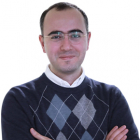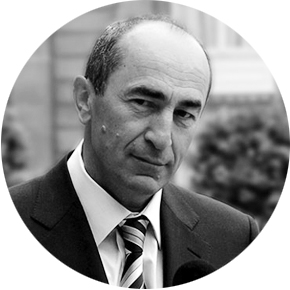Exclusive interview of the second Armenian President, Robert Kocharyan, to Mediamax
- Armenia will celebrate the 20th anniversary of its independence in a week. Thank you for having agreed to talk to us about the anniversary and let us congratulate you on the upcoming holiday.
- Thank you. I would also like to congratulate you and all our compatriots on the 20th anniversary of independence.
- You were the President of Armenia during 10 years out of 20 years of independence. Did your perception of an independent statehood change during these 10 years, conditioned by the gained experience, change of the scale of the tasks set or other factors?
- Yes, of course it did. First of all, the world itself is changing fast enough and one has to harmoniously fit in these changes. By the way, it refers both to the country and to the citizens. Otherwise you will lag behind. And, of course, the governing experience and the intuition help quickly choose the direction of reforms, their speed and depth. The process of globalization already sets definite parameters of economic policy and ignoring them might be simply fatal for country’s economy. One should grasp the emerging trends and not catch up with them. Armenia simply must and can develop faster than the world’s average rates.
- You have met with the leaders of largest and most powerful countries, discussed complicated issues with them and, most likely, not always managed to come to an agreement. How can the head of a small but independent country say “No” to the powers that be?
- You shouldn’t have any complexes. The size of the country doesn’t mean that its leader is cleverer or more efficient than other presidents. Yes, they are certainly more powerful due to the political weight of the country. But it doesn’t necessarily mean that they are your bosses if, of course, you don’t perceive them as such. The most important thing is to build correct, fair, partner relations, clearly outline the interests of your country and have persuasive arguments if you disagree with something. For example I have very warm recollections of my meetings with Vladimir Putin, Jacques Chirac and Bill Clinton. None of them ever tried to emphasize his superiority.
- The boys and the girls who were born in 1991 are already 20 years old. This is the generation, which has never seen the Soviet times and has heard of them only from parents or books. In some 10 or 15 years this generation will play a decisive role in the process of building of Armenia’s future. What can you advise these young people?
- I think giving advice is useful only if the addressee realizes that he needs it. That’s why I don’t like giving advice. I would rather wish them to become the example of Armenia’s competitive advantage by their knowledge, energy and creativity.
- Independent Armenia will mark its 50th anniversary in 30 years. What will it be like then?
- I don’t know. A little more than 50 years ago, Somali and South Korea had almost the same GDP per capita and today it's even impossible to compare these countries. Somali is torn apart by contradictions, the population is starving, whereas South Korea has become a powerful industrial country and one of the world leaders by a number of branches of economy. This is the effective management, the vision of perspectives and the choice of proper development model. I believe Armenia has a serious potential to become the most effective country in the South Caucasus. Time will show how this potential will be realized.
- In conditions of globalization, people’s free movement across the world, development of internet, social networks and technologies, opinions are more frequently voiced that the conception of an independent statehood gradually loses its primary meaning and will finally have a symbolic significance. What do you think, how real this scenario is?
- The model of the European Union certainly suggests something like that. But this model is effective only in Europe. It has a pronounced European character and there will be no such integration anywhere else in the foreseeable perspective. Yes, nobody is going to reject national states even in the European Union. I think independent countries will long be the main subject of the international law.
- Boris Yeltsin and Nursultan Nazarbayev visited Stepanakert 20 years ago. What do you remember about this visit? Are there any details still unknown to the general public? What do you think, could this visit give real results or Azerbaijan was not ready for concessions and the war was inevitable?
- Yes, I remember this visit very well. Together with Leonard Petrosyan we conducted negotiations with Boris Yeltsin and Nursultan Nazarbayev on our vision of the fate of Nagorno Karabakh. There are indeed some details unknown to the general public. But I don’t think the time has come to speak about them. This was the mediators' sincere attempt to stop the escalation of the conflict, but I don’t think anything could be changed by that time. The process developed by other logic, in the context of collapse of the USSR.




















Comments
Dear visitors, You can place your opinion on the material using your Facebook account. Please, be polite and follow our simple rules: you are not allowed to make off - topic comments, place advertisements, use abusive and filthy language. The editorial staff reserves the right to moderate and delete comments in case of breach of the rules.